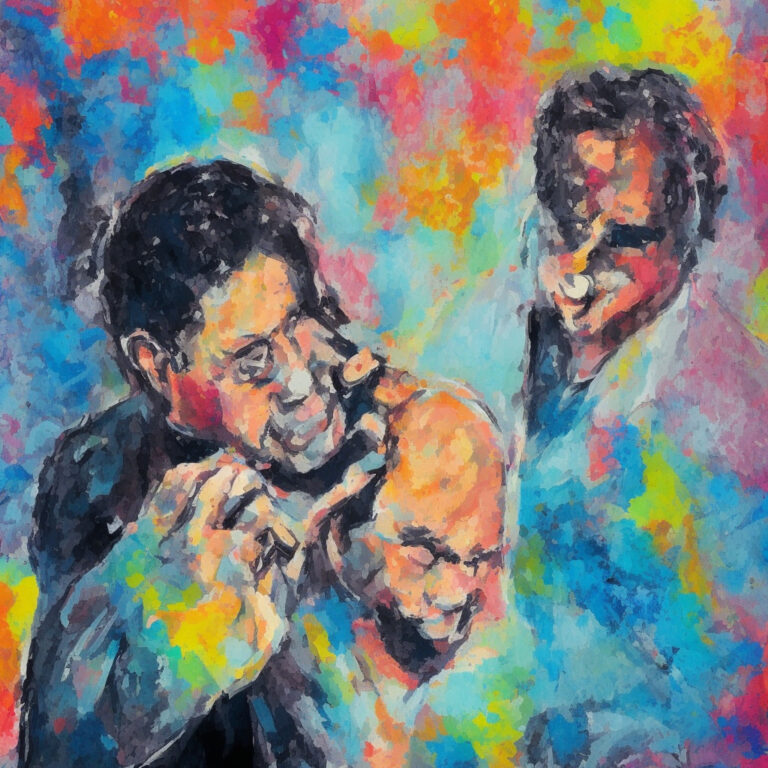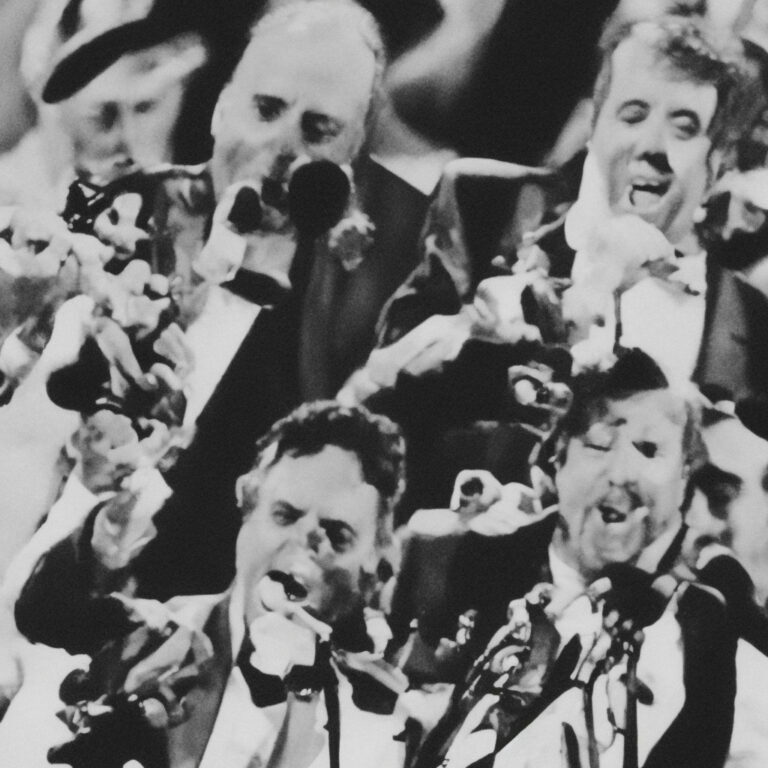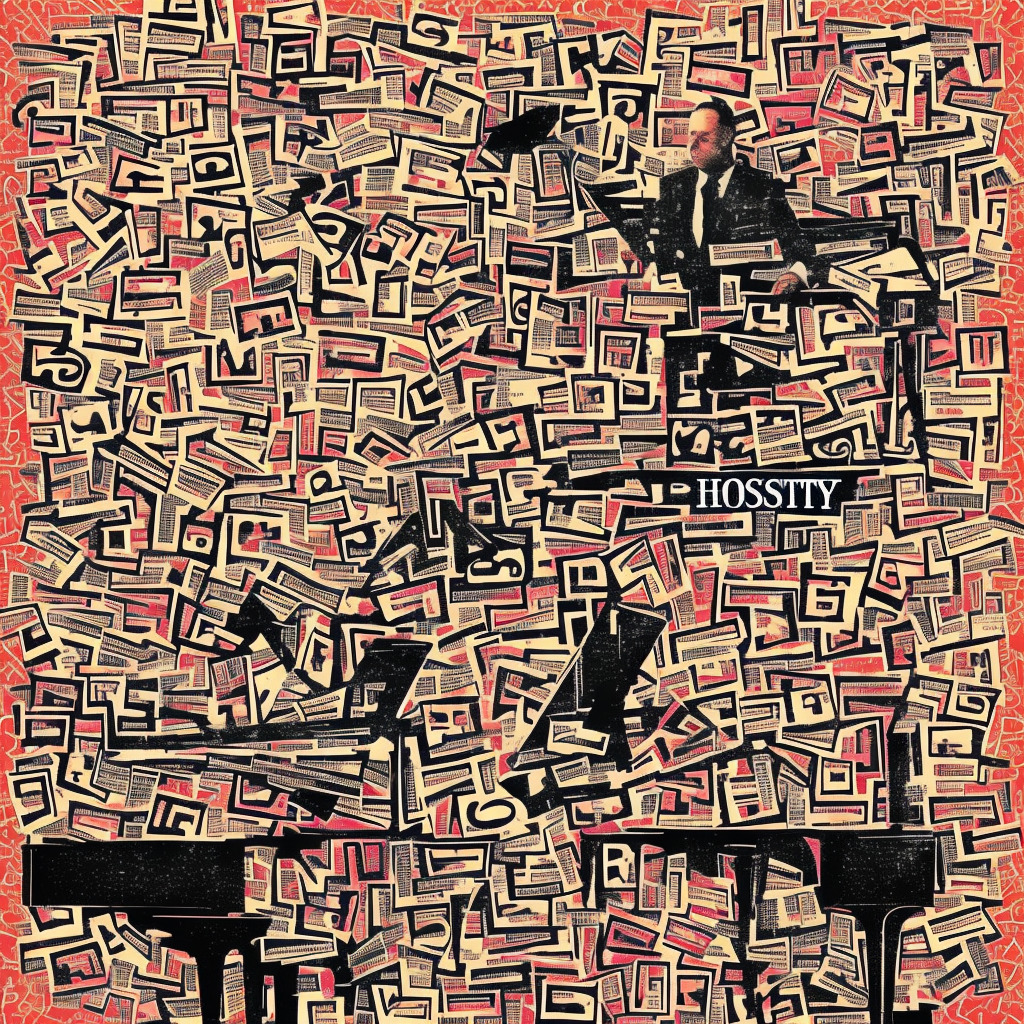🎹 Did you know Billy Joel’s soul-stirring ballad “Honesty” was rumored to be inspired by his own struggles in the music biz?🔥Truth prevails in this timeless hit! 🎶 #BillyJoel #Honesty #MusicTrivia #ClassicTunes Read about it: tinyurl.com/37fzwfts
The Timeless Power of Sincerity: A Look at Billy Joel’s Classic Ballad
Dive into the timeless emotional depths of Billy Joel’s iconic ballad “Honesty,” where genuine connection triumphs over superficiality in a world that still resonates with audiences today.

If there’s one artist who has consistently demonstrated an ability to tap into the very core of human emotion, it’s none other than the Piano Man himself, Billy Joel. With a career spanning over four decades, this living legend has gifted us with countless timeless hits, from the upbeat and catchy “Uptown Girl” to the reflective “New York State of Mind.” However, the focus of this post will be on one of Joel’s most poignant and heartfelt songs: “Honesty.”
Released in 1979 as part of Joel’s sixth studio album, “52nd Street,” “Honesty” is a stripped-down ballad that dives deep into the complexities of human relationships and the struggles of finding genuine connection in a world filled with superficiality. The song’s powerful lyrics, combined with Joel’s masterful piano arrangement and emotive vocals, create a truly unforgettable listening experience that still resonates with audiences today.
Throughout his illustrious career, Billy Joel has faced both praise and criticism. While his undeniable skill as a pianist and songwriter is widely recognized, some critics argue that his music can veer into the realm of the overly sentimental or clichéd. However, even in the face of such critiques, tunes like “Honesty” continue to stand as testaments to the power of raw, genuine emotion in music.
As a multi-talented musician, Billy Joel’s contributions to the world of music have not gone unnoticed. Over the years, he has earned an impressive array of awards, including 5 Grammy Awards, the Gershwin Prize for Popular Song, and the prestigious Kennedy Center Honors, among others. Furthermore, he was inducted into the Songwriters Hall of Fame in 1992 and the Rock and Roll Hall of Fame in 1999, solidifying his status as a true icon in the annals of music history.
In conclusion, the enduring appeal of Billy Joel’s “Honesty” can be attributed not only to the sheer talent of its creator but also to the universal themes and emotions it explores. It’s a song that reminds us of the importance of sincerity in even the most difficult of times, and for that reason, it will likely continue to hold a special place in the hearts of music lovers for generations to come.
Charting the Journey of Honesty
Climbing charts and capturing hearts, Billy Joel’s timeless classic “Honesty” continues to resonate with fans worldwide as a testament to its enduring appeal.

When it comes to chart performance, “Honesty” undoubtedly made a significant impact. Released as a single on May 22, 1979, off Billy Joel’s sixth studio album, “52nd Street,” the song quickly gained traction and resonated with listeners around the world.
In the United States, “Honesty” made its debut on the Billboard Hot 100 chart on June 16, 1979, at an impressive #71. Over the course of 16 weeks, the song steadily climbed the charts, reaching its peak position at #24 on September 1, 1979. While it may not have broken into the top 10, the song’s enduring popularity is evidence of its timeless appeal. As for the Adult Contemporary chart, “Honesty” fared even better, peaking at #2 and remaining on the chart for a total of 20 weeks.
Across the pond, “Honesty” made a splash in the United Kingdom as well, entering the UK Singles Chart on June 30, 1979. It reached its peak position of #16 on July 21, 1979, and remained on the chart for a total of 8 weeks. In neighboring Ireland, the song also found its way into the charts, peaking at #12.
In addition to its success in English-speaking countries, “Honesty” made waves in various international markets. The song reached the top 10 in countries such as Canada, where it peaked at #6, and New Zealand, where it climbed to #7. It also found chart success in countries like Belgium, the Netherlands, and Germany, further solidifying its global appeal.
While “Honesty” may not have shattered records or dominated the charts upon its release, its steadily growing popularity and enduring resonance with fans around the world have proven it to be a true classic in Billy Joel’s extensive catalog.
Delving Into the Depths of Honesty
Before we dive into the meaning behind the lyrics of Billy Joel’s “Honesty,” let’s take a moment to appreciate the words themselves:
If you search for tenderness
It isn’t hard to find
You can have the love you need to live
But if you look for truthfulness
You might just as well be blind
It always seems to be so hard to give
Honesty is such a lonely word
Everyone is so untrue
Honesty is hardly ever heard
And mostly what I need from you
Penned by Billy Joel in 1978 for his album “52nd Street,” “Honesty” reflects the longing for genuine connection in a world where superficiality and deceit often reign. In the late ’70s, society was experiencing significant changes, such as the rise of consumerism and the decline of political trust. The Watergate scandal had occurred just a few years prior, and the Vietnam War had left a lasting impact on the public’s faith in their leaders. In this context, “Honesty” emerges as a powerful plea for truth and sincerity, both in personal relationships and society at large.
The lyrics express the struggle to find truthfulness in a world where people are more inclined to offer love and tenderness than honesty. Through these words, Billy Joel highlights the value of honesty in relationships, suggesting that while love may come easily, true honesty is a rare and precious quality. In a time when trust in institutions was wavering, these lyrics resonated with listeners who longed for more genuine connections and transparent communication.
As we listen to “Honesty,” we are reminded of the timeless need for open and honest communication in relationships, as well as the importance of maintaining personal integrity in a society where deceit and superficiality can often overshadow genuine connections.
A Dive into the Visuals of “Honesty”
Diving into the timeless visuals of “Honesty” – a powerful testament to minimalism, raw emotion, and directorial genius in Billy Joel’s iconic music video.
The music video for Billy Joel’s timeless ballad “Honesty” was released in 1979, directed by the legendary Russell Mulcahy. Mulcahy is known for his work on iconic music videos for artists like Duran Duran, Elton John, and The Buggles. His artistic vision and unique directorial style can be seen throughout the “Honesty” music video, making it a significant and memorable part of Billy Joel’s videography.
Mulcahy decided to take a minimalist approach for the “Honesty” video, putting the focus on simplicity and emotion. The video primarily features Billy Joel himself, seated at the piano and delivering an earnest and heartfelt performance. This stripped-down setting allows the viewer to connect with the raw emotion of the song, showcasing the power of honesty and vulnerability in relationships. Mulcahy also made use of contrasting light and shadow, creating a dramatic atmosphere that highlights the intensity of the lyrics.
The music video was not a high-budget production, but the result is a powerful and effective visual representation of the song’s message. Mulcahy’s directorial choices demonstrate that sometimes, less is more when it comes to conveying the essence of a song through visuals. The video has since become a classic and a favorite among fans of both Billy Joel and music video enthusiasts.
Although there is no official alternate version of the music video for “Honesty,” the song has been performed and covered by countless artists over the years. Fans have also created their own visual interpretations and tributes on platforms like YouTube. From live performances to piano tutorials and even animated videos, the impact of “Honesty” continues to resound with fans around the world. These creations are a testament to the song’s enduring legacy and the deep connection that people feel to its message.
In conclusion, the music video for “Honesty” stands as a notable piece of work in the history of music videos, and its minimalist approach, combined with Russell Mulcahy’s directorial expertise, has ensured its lasting impact on fans and the music community at large.
A Closer Look at the Man Behind “Honesty”: Billy Joel’s Songwriting Prowess
The composer of “Honesty,” William Martin Joel, better known as Billy Joel, has had a long and illustrious career in the music industry. Born on May 9, 1949, in The Bronx, New York, Joel started playing the piano when he was just four years old. He later honed his craft as a singer-songwriter and pianist, becoming one of the most revered music icons of all time. In addition to “Honesty,” Billy Joel has a plethora of notable songs and albums under his belt, with one of his most famous songs being “Piano Man” from the 1973 album of the same name. Other notable compositions include “Just the Way You Are,” “Uptown Girl,” “We Didn’t Start the Fire,” and “New York State of Mind,” all of which showcase Joel’s ability to encapsulate various musical styles and genres. With a career spanning five decades, Joel has won numerous awards and accolades, including six Grammy Awards, and has sold over 150 million records worldwide.
A Journey Through Accolades and Pop Culture
“From chart-topping success to pop culture mainstay, Billy Joel’s timeless ballad ‘Honesty’ continues to captivate audiences across generations and mediums, transcending languages and genres.”

“Honesty” has received numerous accolades since its release, a testament to the song’s enduring appeal and the profound impact it has had on listeners throughout the years. The track, released in 1978 as part of Billy Joel’s album “52nd Street,” peaked at #24 on the US Billboard Hot 100 chart and reached the top 20 in several other countries. With its evocative lyrics and haunting melody, “Honesty” quickly became a fan favorite and a staple in Billy Joel’s live performances.
The song found success beyond the charts as well. Over time, “Honesty” has made its way into a variety of TV shows and movies, further solidifying its place in popular culture. From an appearance in the critically acclaimed 2014 film “Still Alice,” which explores the devastating effects of early-onset Alzheimer’s, to its inclusion in the soundtrack of the popular video game “Grand Theft Auto IV,” the song continues to resonate with audiences across various mediums.
A testament to the song’s enduring popularity is the variety of cover versions produced over the years. Notable artists who have put their own spin on “Honesty” include Susan Wong, a Hong Kong-based jazz singer known for her sultry and emotive interpretations of classic tunes. The song has also been recorded in several languages, including a French version by singer Richard Anthony titled “L’Amour est toujours en vacances” and a Spanish version by José José called “Honestidad.”
Additionally, “Honesty” has taken on new life in the realm of reality TV, with several contestants from singing competitions such as “The Voice” and “American Idol” choosing to perform the song for their auditions or live performances. This further demonstrates the timeless appeal of this moving ballad: even decades after its initial release, it still has the power to captivate audiences and inspire new generations of artists.
Dissecting the Musical Layers
Diving into the musical intricacies of “Honesty,” we find that the song is written in the key of B-flat major. This key is known for its rich and warm tonality, which perfectly complements the emotive depth of the song’s lyrics. The chord structure primarily revolves around a sequence of B♭maj7 – E♭maj7 – B♭maj7 – Gm7 – Cm7 – F7, with occasional variations throughout the song to keep the listener engaged.
The tempo of “Honesty” is set to a moderate 72 beats per minute, giving it a heartfelt, slow-paced ballad feel. This tempo choice allows the listener to focus on the emotive depth of both the lyrics and the piano accompaniment, which is the backbone of the song’s arrangement. The piano plays a crucial role in setting the mood of the piece, with its signature staccato chords during the verses and flowing arpeggios in the chorus.
The rhythmic structure of the song consists of a steady 4/4 time signature, which is common in pop music and provides a solid foundation for the melody to unfold. Billy Joel’s vocal performance is, as always, a standout element, with a wide range of dynamics and emotional expression that adds depth to the song. The verses are delivered with a gentle, melancholic touch, while the choruses showcase Joel’s powerful and passionate vocal range.
In terms of instrumentation, “Honesty” is primarily driven by its piano foundation, but also features subtle string arrangements that provide a lush, cinematic quality to the song. The strings are most prominent during the instrumental bridge, where they take center stage and create a symphonic interlude that contrasts with the piano-driven sections.
As with many of Billy Joel’s songs, the harmonic structure of “Honesty” is both sophisticated and accessible, making it appealing to both casual listeners and music aficionados. The way the chords and melody intertwine creates a sense of tension and release, which mirrors the emotional journey of the song’s lyrical content.
In conclusion, “Honesty” is a prime example of Billy Joel’s ability to craft a musically engaging and emotionally resonant song. The combination of its warm key, carefully constructed chord progressions, and masterful vocal performance make it a timeless classic that continues to resonate with audiences today.







